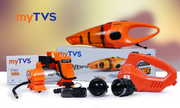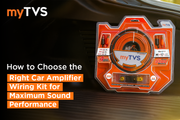Choosing the right car amplifier wiring kit is one of the most important decisions you’ll make when upgrading your car’s sound system. The right wiring kit ensures your amplifier receives clean, steady power, which is critical to producing crisp, distortion-free audio. Without proper wiring, even the best amplifiers will struggle to deliver their full potential, resulting in poor sound quality, potential electrical problems, and even damage to your equipment.
Whether you’re a beginner setting up your first car audio system or a seasoned car audio enthusiast looking to upgrade, understanding how to select the correct car amplifier wiring kit can make a huge difference in your listening experience. This guide covers everything from the basic components of a wiring kit to installation tips and common mistakes to avoid.
What Is a Car Amplifier Wiring Kit?
A car amplifier wiring kit is essentially a complete package designed to provide all the cables and connectors you need to safely connect your amplifier to your vehicle’s power source and audio system. The kit typically includes:
- Power cable: This thick cable runs directly from the car battery to the amplifier, supplying the high current needed for the amplifier to function.
- Ground cable: A crucial wire that connects the amplifier to the vehicle’s chassis to complete the electrical circuit and prevent electrical noise.
- RCA cables: These cables carry the audio signal from the head unit (your stereo) to the amplifier, ensuring clean sound transmission.
- Fuse holder and fuse: The fuse protects the amplifier and wiring from power surges or shorts that could cause damage or fire.
- Remote turn-on wire: This thin wire signals the amplifier to turn on when the stereo powers up and turns off when the stereo is off.
Unlike buying individual cables, purchasing a car amplifier wiring kit ensures that all components are compatible and designed to work together. The kits differ by wire gauge (thickness) and material quality—commonly oxygen-free copper (OFC) or copper-clad aluminum (CCA). OFC cables offer better conductivity and durability, which can affect your system’s overall performance and longevity.
Why Your Amplifier Needs the Right Wiring
Using the correct car amplifier wiring kit is crucial for your amplifier’s performance and safety. Here’s why:
- Efficient power transmission: Proper gauge and quality wiring allow your amplifier to receive consistent voltage and current, maximizing audio output without dropouts or distortion.
- Avoid overheating and voltage drops: Thin or poor-quality cables create resistance, which causes heat buildup and reduces voltage delivered to the amplifier. This can cause the amplifier to shut down or perform poorly.
- Reduce audio interference: A quality wiring kit minimizes electrical noise and interference, preventing crackling or buzzing sounds.
- Protect amplifier lifespan: Proper wiring reduces stress on your amplifier’s internal components, lowering the risk of premature failure.
- Safety: Correctly fused wiring kits help prevent electrical fires and shorts, protecting you and your vehicle.
In short, the right wiring kit is the foundation for a powerful, clear, and safe car audio system.
Key Factors to Consider When Choosing a Wiring Kit
When selecting a car amplifier wiring kit, it’s important to evaluate several key factors to ensure compatibility and performance:
- Gauge size: This refers to the thickness of the wire, measured by the American Wire Gauge (AWG) system. Lower AWG numbers mean thicker wire, which can handle more current. Choosing the right gauge is critical; too thin and the wire won’t carry enough power, causing voltage drops and potential damage.
- Material quality: OFC (oxygen-free copper) wiring offers higher conductivity and better durability compared to cheaper CCA (copper-clad aluminum). While OFC kits are more expensive, they deliver superior performance and longevity.
- Cable length: The longer the power or ground cable, the more resistance it will have. Excessive length increases voltage loss, so keep cables as short as possible without straining them.
- Fuse rating: The fuse protects your wiring and amplifier from electrical faults. The fuse rating should match the maximum current your amplifier draws and should be installed close to the battery.
- Compatibility: Ensure the wiring kit is compatible with your amplifier’s power rating and your vehicle’s electrical setup. Some kits are designed specifically for certain amplifier brands or sizes.
- Additional components: Check that the kit includes quality connectors, fuse holders, and proper insulation for safety and ease of installation.
Top Types of Wiring Kits (by Gauge & Power)
The type of car amplifier wiring kit you need largely depends on the power output of your amplifier. Here’s a general guideline to help you choose:
- 8 Gauge Wiring Kits:
Suitable for amplifiers up to about 400 watts RMS. Ideal for beginner or entry-level sound systems that don’t demand high current flow.
- 4 Gauge Wiring Kits:
Designed for amplifiers in the 400 to 800 watts RMS range. This thicker wire reduces voltage drop and heat buildup, perfect for mid-range systems.
- 0 Gauge Wiring Kits:
Used for powerful amplifiers exceeding 800 watts RMS. These heavy-duty cables provide the high current necessary for large systems or competitive audio setups.
Choosing the correct gauge wiring kit ensures your amplifier gets enough power without straining the wiring or risking damage.
Expert Tips to Install Your Car Amplifier Wiring Kit Safely
Installing a car amplifier wiring kit correctly is just as important as choosing the right one. Here are some expert tips to help you:
- Prepare the right tools: Wire strippers, crimpers, electrical tape, a multimeter, and zip ties will make installation easier and safer.
- Route wires carefully: Avoid running power cables near moving parts, heat sources (like exhaust pipes), or sharp edges to prevent damage or interference.
- Ground properly: Attach the ground cable to a clean, unpainted metal surface on your vehicle’s chassis near the amplifier. A good ground reduces noise and prevents electrical issues.
- Install fuse near the battery: Place the fuse holder as close to the battery’s positive terminal as possible to protect your wiring from short circuits.
- Secure all cables: Use zip ties or clamps to prevent cables from moving or chafing, which can lead to shorts or breaks.
- Avoid wire crossing: Keep power cables separated from RCA and signal wires to reduce electromagnetic interference (EMI) and audio noise.
Following these steps will help you get the most out of your car amplifier wiring kit safely and effectively.
Mistakes to Avoid When Buying a Wiring Kit
To ensure your audio system is reliable and performs well, avoid these common mistakes:
- Choosing cheap, low-quality materials: Inferior cables with poor conductivity increase resistance and risk failure.
- Using the wrong gauge: Too thin wiring won’t handle your amplifier’s current, causing overheating or voltage drop.
- Skipping fuse protection: Not installing the correct fuse can lead to dangerous electrical faults or fires.
- Mismatched components: Using wiring kits that don’t match your amplifier’s power or your vehicle’s specifications may lead to compatibility issues and poor performance.
- Ignoring installation quality: Even the best wiring kit won’t perform if installed incorrectly or routed poorly.
Investing in a good quality car amplifier wiring kit and installing it properly is essential for a safe, clear, and powerful audio experience.
Best-Selling Kits in the Market (2025 Edition)
Some of the top-rated car amplifier wiring kits available this year include:
- Brand A: 4 Gauge kits with oxygen-free copper cables, including fuse holders and remote wires. Known for durability and ease of installation.
- Brand B: Heavy-duty 0 Gauge kits designed for high-power amplifiers. These kits support very high wattage and provide reliable, safe power delivery.
- Brand C: 8 Gauge budget-friendly kits, great for beginners or basic setups, including essential cables and connectors with decent build quality.
Each of these kits suits different needs and budgets, so select based on your amplifier power and system requirements.
Final Thoughts
The car amplifier wiring kit is the backbone of your car audio system’s electrical setup. Selecting the right gauge, quality materials, and proper components not only protects your equipment but ensures you get the best sound performance possible. Don’t settle for subpar wiring that can cause distortion, heat buildup, or damage. Instead, invest in a high-quality wiring kit and follow installation best practices to enjoy clear, powerful audio and long-term reliability.
Ready to Upgrade? Discover High-Performance Audio Accessories at myTVS
Whether you’re building your first system or upgrading to a professional setup, myTVS offers a trusted range of car amplifier wiring kits and accessories. Find easy-to-install, high-quality wiring solutions with expert support and nationwide service. Visit myTVS and power your car audio experience the right way.
Frequently Asked Questions (FAQs)
Q1. How do I determine the correct wire gauge for my amplifier?
Check your amplifier’s RMS power rating and use a wiring gauge chart to select the appropriate cable thickness. Larger amplifiers need thicker cables (lower AWG numbers).
Q2. What is the difference between OFC and CCA cables?
OFC (oxygen-free copper) cables have higher conductivity and better durability, while CCA (copper-clad aluminum) cables are cheaper but less efficient and prone to corrosion.
Q3. Why is fuse protection important in a wiring kit?
A fuse prevents damage by breaking the circuit if there’s a power surge or short, reducing fire risk and protecting components.
Q4. Can I install a wiring kit myself if I’m a beginner?
Yes, but follow instructions carefully and use the right tools. If unsure, professional installation is recommended to avoid mistakes.
Q5. What happens if I use too thin a wire gauge?
Thin wires can overheat, cause voltage drops, reduce amplifier performance, and increase the risk of electrical damage.
Q6. Are RCA cables always included in car amplifier wiring kits?
Most kits include RCA cables, but some budget kits may not. Always verify before purchasing.
Q7. How close should the fuse be installed to the battery?
The fuse should be installed within 12 inches of the battery’s positive terminal for maximum protection.
Q8. Can I use a wiring kit meant for a different amplifier brand?
Yes, as long as the specifications (gauge, fuse rating, length) match your amplifier’s requirements. Most wiring kits are universal.


